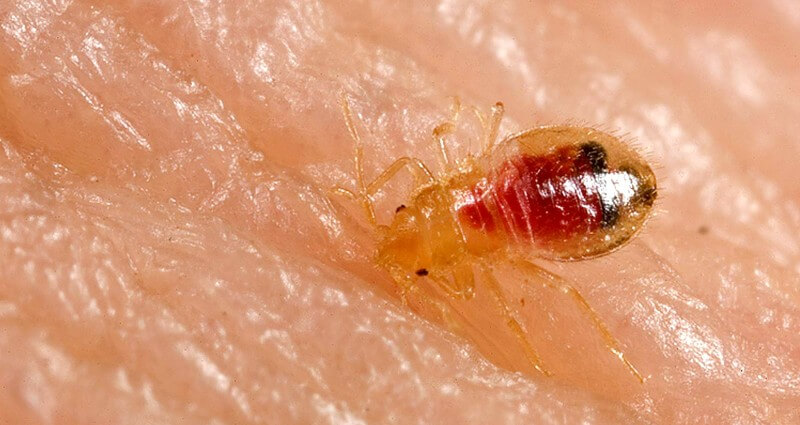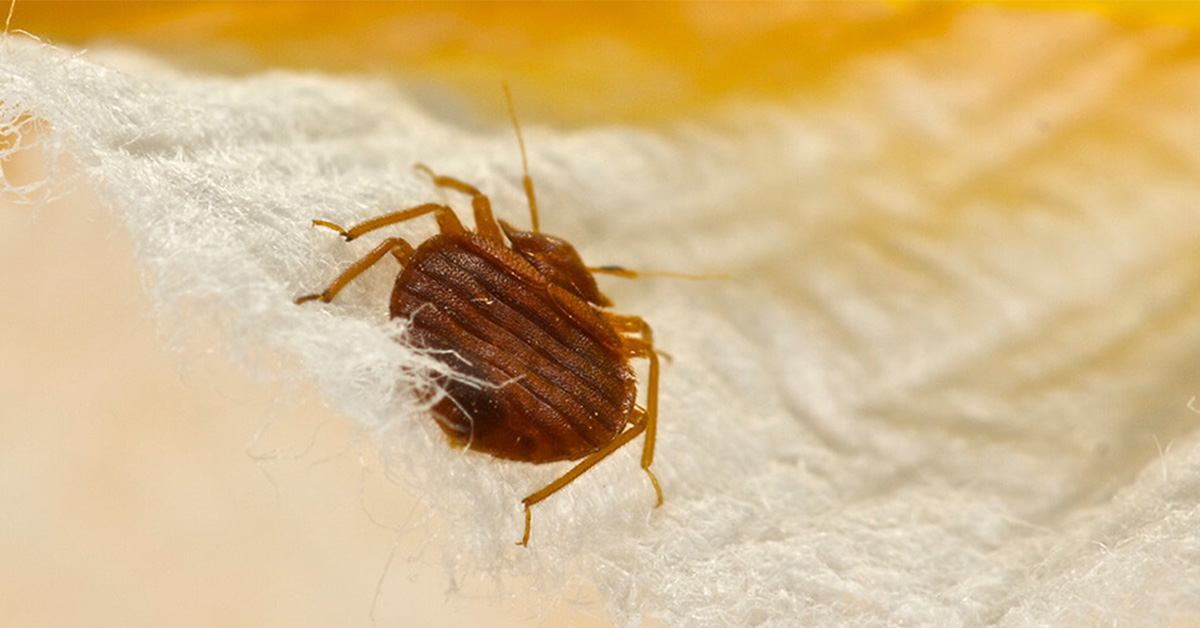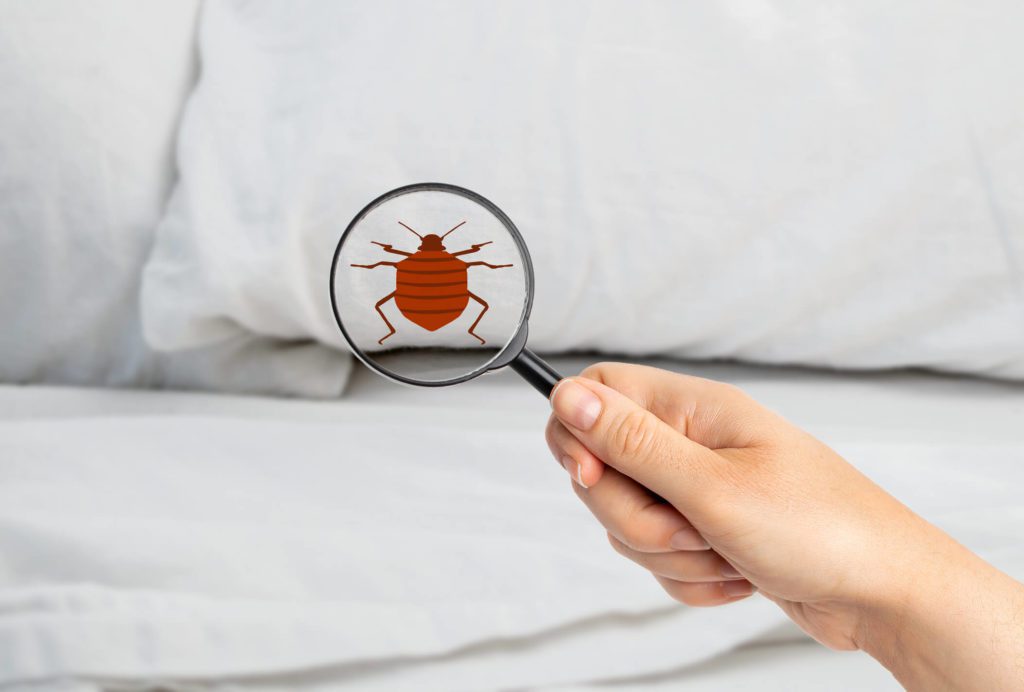Kings Bed Bug Exterminator Cincinnati: Pro Pest Solutions
Kings Bed Bug Exterminator Cincinnati: Pro Pest Solutions
Blog Article
Types of Insect Control: Which Technique Is Right for Your Problem?
When faced with an insect infestation, the option of a proper method for pest control is crucial in effectively taking care of the circumstance. By exploring the numerous types of insect control techniques available, people can make educated choices customized to their special scenarios, ensuring an extra sustainable and reliable end result in bug obliteration.
Chemical Insect Control
Chemical pest control includes the usage of artificial or naturally acquired chemicals to handle and eradicate pest populations efficiently. This method is commonly made use of in farming, forestry, and domestic setups to battle a vast array of parasites, consisting of weeds, pests, and rodents. Making use of chemical pesticides can supply quick and targeted remedies to pest infestations, making it a prominent selection for numerous individuals and services.
Among the essential benefits of chemical insect control is its capacity to promptly eliminate bugs, lowering the risk of damage to crops, residential or commercial property, and human wellness. By utilizing particular chemicals that target specific parasites, this approach can efficiently manage invasions while lessening injury to beneficial organisms and the setting when used appropriately.
However, making use of chemical insect control likewise elevates concerns about potential adverse effects on non-target varieties, water sources, and human health and wellness. It is vital to comply with security standards, apply chemicals responsibly, and consider alternative pest control methods to minimize these risks and ensure sustainable insect management practices.
Organic Parasite Control
Organic pest control, also known as biocontrol, utilizes living microorganisms to handle and minimize parasite populaces naturally. This method harnesses the power of nature to manage insects without the need for artificial chemicals. Biocontrol can entail the introduction of natural adversaries of the bug types, such as predators, bloodsuckers, or microorganisms, to suppress parasite populaces. By utilizing the insect's all-natural predators or pathogens, organic pest control offers a sustainable and eco pleasant remedy to pest management.

Mechanical Bug Control
Using hand-operated and physical methods to take care of parasite populaces, mechanical bug control uses an alternate approach that does not count on using living microorganisms or artificial chemicals. This technique involves the usage of barriers, traps, or various other tools to physically discourage or eliminate parasites. By blocking insect entry factors or establishing traps to capture them, mechanical bug control can efficiently minimize infestations without presenting chemicals right into the environment.
One usual example of mechanical pest control is using mesh displays on windows and doors to protect against bugs from getting in structures. This basic yet effective approach functions as a physical barrier, maintaining insects out while permitting correct ventilation. Additionally, tools like mousetraps, fly swatters, and ultrasonic repellents drop under the mechanical pest control category.
While mechanical parasite control methods can be labor-intensive and call for regular tracking and upkeep, they use a eco pleasant and sustainable solution for handling parasite invasions. By incorporating different mechanical techniques, property owners can develop an extensive bug control strategy that lessens dependence on chemical pesticides.
Physical Bug Control

Some usual physical pest control methods include making use of barriers such as screens or webs to avoid pest access, catches to catch and eliminate pests, and hand-picking to literally eliminate insects from plants or structures. In addition, techniques like heat treatments can be used to regulate bugs like bed bugs by elevating the temperature to levels that are dangerous to the bugs.
Physical pest control is specifically beneficial in integrated bug management (IPM) strategies, where numerous insect control approaches are integrated weblink for effective bug management while decreasing making use of chemicals. By utilizing physical parasite control techniques, people can efficiently resolve bug infestations with marginal environmental effect.
Integrated Pest Administration
When implementing physical bug control approaches as part of bug management techniques, Integrated Parasite Management (IPM) arises as a comprehensive method that leverages numerous techniques to successfully regulate pest populations. IPM concentrates on lasting prevention of pests with a mix of organic, cultural, physical, and chemical tools customized to details parasite problems. By incorporating several control tactics, IPM aims to lessen the dangers related to insects while likewise lowering reliance on chemical services.
One secret facet pest removal of IPM is the emphasis on monitoring and examining pest populaces to establish one of the most appropriate control methods. This positive technique permits for very early treatment and targeted strategies, leading to much more effective insect administration. Furthermore, IPM advertises ecologically pleasant methods by focusing on non-chemical control techniques and only utilizing pesticides as a last resort.
Verdict

By utilizing the parasite's natural predators or microorganisms, organic pest control provides a lasting and environmentally friendly solution to pest administration. - Kings best pest control cincinnati
Utilizing physical and manual techniques to handle insect populations, mechanical pest control provides an alternate technique that does not depend on the usage of living organisms or synthetic chemicals.An efficient technique to handling insect populations without relying on chemical or biological methods entails the usage of physical parasite control strategies.When mouse trap executing physical insect control methods as part of pest monitoring approaches, Integrated Bug Administration (IPM) emerges as a thorough strategy that leverages numerous techniques to effectively regulate pest populaces. Chemical insect control involves the use of chemicals, biological insect control uses all-natural killers, mechanical bug control entails physical barriers, physical pest control consists of capturing or removing pests, and incorporated insect management integrates several methods for an all natural technique to pest control.
Report this page